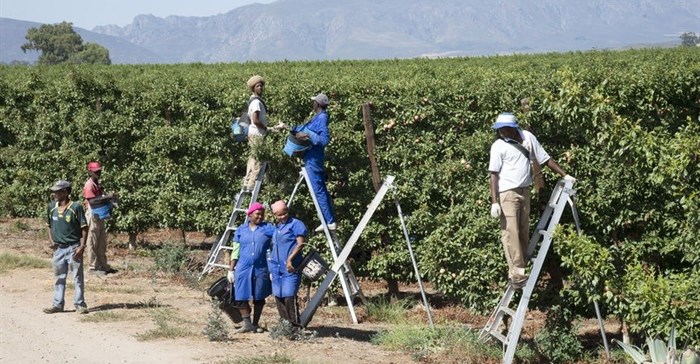Recently, President Donald Trump successfully succeeded to withdraw the US from the Trans-Pacific Partnership (TPP). At the back of that decision, questions have since been raised over the future of the Africa Opportunity and Growth Act (AGOA) which was meant to expire in 2015, however, after intense and robust negotiations that took place in 2014 the Obama Administration decided to extend it to 2025, allowing it to continue for 10 more years.

Hamlet Hlomendlini
Since President Trump fulfilled a campaign pledge to withdraw from TPP, AGOA beneficiaries like South Africa are speculating that this could be a sign of worse things to come especially also following his scourge of attacks on the US trade deals during his election campaigns. Fuelling this concern may also be attributed to the realisation that there has not been anything of substance mentioned by President Trump relating to AGOA since he took office.
Ignoring the benefits of AGOA
Adding to the doubts about the future of AGOA is the fact that, recently, President Trump’s transition team sent the State Department four pages of questions about Africa which reveal an administration deeply skeptical of US engagement on the African continent on several issues which include trade deals. One of the questions posed by Trump’s team particularly probed the AGOA, which gives some products made in Africa duty-free access to the US. The question was phrased as follows: “Most of AGOA imports are petroleum products, with the benefits going to national oil companies, why do we support that massive benefit to corrupt regimes?” There may be nothing wrong with the phrasing of the question, however, the tone of it is somewhat concerning.
The question clearly disregards the fact that since its creation in 2000, AGOA has created more than 300,000 jobs and 120,000 in Africa and the US respectively. It also does not emphasize the positive impact AGOA has had in people lives and the platform it created for trade relations, and it paints Africa as a continent ruled by corrupt governments.
Between 2001 and 2014, the total two-way trade between South Africa and the US increased from R56.7 billion to R141 billion. South African exports during the same period to the US grew from R30 billion to R69.8 billion while those from the US to South Africa grew from R26.6 billion to R71 billion. There are other noticeable mutual benefits gained between the US and oil exports countries mainly Angola, Nigeria, and to a lesser extent Chad and the Republic of Congo, but this question deliberately ignores all that.
SA the most significant non-oil AGOA beneficiary
AGOA is without a doubt good for Africa and South Africa, in particular, has used it reasonably well compared to other beneficiaries in Sub-Saharan Africa who all have access to AGOA but do not have the capacity to export, mainly because they produce few commodities. The oil producers have used it, but non-oil producers have used it mainly for exporting clothing and textiles, but the quantum of export has been very small.
South Africa is the most significant non-oil AGOA beneficiary because its exports are relatively diversified across extractive as well as manufacturing sectors. Motor vehicles have been the largest export in this category, which also includes steel, chemicals, and agricultural goods (primarily wine, citrus, macadamia nuts and other processed foods). If AGOA under the Trump administration is revised or scrapped out, these industries could be hurt greatly and that could lead to job losses.
Creating certainty
While AGOA remains very important for South Africa, the current situation of uncertainty around its future is of major concern for the country. At this stage, no one knows what is going to happen with AGOA, and trying to read or predict what is going to happen might be very risky. However, it is important to consider all the possible scenarios that the Trump administration might explore and how South Africa in response to that can better position itself in the market.
Business likes certainty and predictability - anything South Africa can do to bring certainty for the market is of great importance and it will be greatly welcomed by business. With that in mind, it would be wise for South Africa to start exploring the options available, one of which is to consider going into some form of a long-term bilateral trade relationship with the US which should be built upon the strong ties that already exist between the two of them.
Most importantly, when negotiating trade agreements, South Africa must clearly articulate a vision of what it is they want to see in a reciprocal trade agreement (whatever it may be). That vision must speak to the NDP i.e. it must help stimulate economic growth, which is a prerequisite for job creation.
Sub-Saharan Africa remains the largest and important destination for South African exports, especially agricultural, and South Africa remains a gateway for some African countries to the US markets. Therefore, whatever South Africa brings forward must also support regional integration in line with the 2063 AU Agenda which amongst other points states that “by 2063, African countries will be amongst the best performers in global quality of life measures. This will be attained through strategies for inclusive growth, job creation, increasing agricultural production, investments in science, technology, research and innovation, gender equality, youth empowerment and the provision of basic services including health, nutrition, education, shelter, water, and sanitation”.






































